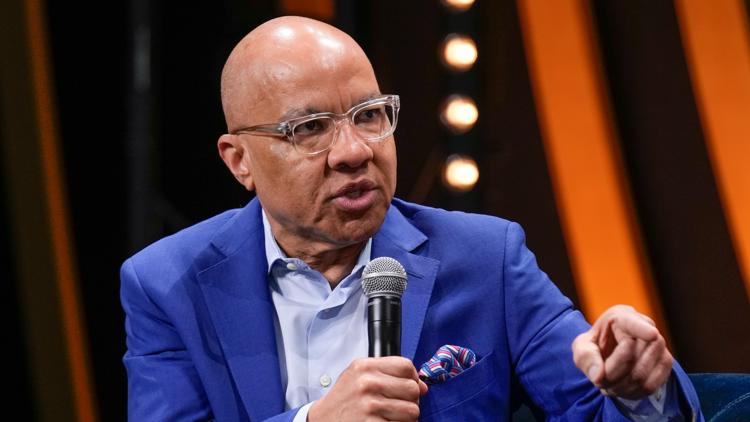NEW YORK — If there are rock stars in philanthropy, Darren Walker, the president of the Ford Foundation, is one of them. And he's about to exit the stage.
Walker, 64, has been named one of Rolling Stone’s “25 People Shaping the Future” and Time’s “100 Most Influential People” as he led one of the original American philanthropies since 2013. The foundation said Monday that he will step down from his role by the end of 2025.
A search committee has been convened to find Walker's replacement, said Ford Foundation board chair Francisco Cigarroa.
Walker "has guided Ford through some of the most challenging moments of our time with grace, kindness, and empathy, and his tenure will be remembered as one of the most consequential periods in the institution’s nearly 90-year history,” Cigarroa said in a statement.
A former corporate attorney and chief operating officer of the Harlem-based Abyssinian Development Corporation, Walker oversaw major investments in advocating for gender equity and disability rights, interrogating the impact of new technologies, and leveraging the foundation's own assets for impact.
In describing his outlook, including in a 2021 interview with The Associated Press, Walker often referenced Dr. Martin Luther King, who he credited with saying, “philanthropy is commendable, but it should not allow the philanthropist to overlook the economic injustice that makes philanthropy necessary.”
Latanya Mapp, president and CEO of Rockefeller Philanthropy Advisors, called Walker an “icon' and ”a beacon," for how to lead authentically in the struggle for social justice in a changing world.
“He has been able to, I think, bring change in ways that many philanthropies have only put rhetoric towards,” said Mapp, noting that Walker had previously served on RPA's board.
Former President Barack Obama told The New York Times, which first reported Walker's resignation, that Walker has, "devoted his career to social justice, human rights, and reducing inequality around the world — and he’s inspired countless organizations and individuals to do the same.”
As the impact of the COVID-19 pandemic began to crystalize in 2020, Walker advocated that Ford leverage its endowment to issue a social bond, essentially taking out debt to increase its grantmaking. The board approved a $1 billion bond issuance, which was snapped up by socially-conscious investors and which the foundation paid out over two years to its grantees. The vast majority went to organizations led by people of color, the foundation said at the time, and most of the funds were unrestricted.
Other foundations followed suit, helping to both stabilize nonprofits and to strengthen the racial justice movement that exploded again after the murder of George Floyd.
A gay man and a Black man, Walker has spoken of growing up in poverty in rural Texas and of the particular perspective he brings to leading the Ford Foundation. Mapp called Walker incredibly humble and said he speaks about the issues facing people in communities without centering his own experiences.
“He centers the communities themselves and the stories of the people who are going through, many of the challenges and the needs of today,” she said.
With an endowment of $16 billion, the Ford Foundation is one of the largest U.S. philanthropic foundations. It was founded with the wealth of the Ford family, who made their fortune manufacturing cars through Ford Motor Co.



